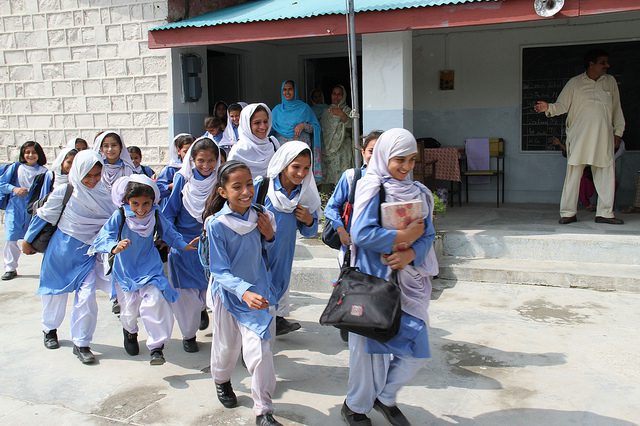
Cultural anthropologist Abdul Razaque Channa, Ph.D. shares his research on the COVID-19 pandemic and its impacts on learning among Pakistan’s school-aged children. Professor Channa is a Research Affiliate at the Mittal Institute and an Assistant Professor at the Department of Anthropology and Archaeology, University of Sindh – Jamshoro. What follows is a summary of his findings.
While COVID-19 has impacted each demographic group differently, experts agree that primary school-aged children—particularly those 5-10 years old—have been impacted in unprecedented ways. Since I had already been conducting research with primary school-aged children for a decade, the lack of ethnographic research on children’s life experiences during the coronavirus pandemic motivated me to undertake further research with them, specifically on this topic.
Since the World Health Organization (WHO) declared COVID-19 a global pandemic on March 11, 2020, numerous publications have been publishes, including research articles, op-eds, blogs, and reports. However, the majority of them rely heavily on quantitative data. These studies quantify individual lives and experiences—largely traumatic and inexplicable—and communicate little from the field about quotidian discourse and the discursive practices of humans, particularly children. Of course, this is understandable, given how drastically COVID-19 altered the way we conduct research, especially ethnographic fieldwork.
My current research project is motivated by a question: What impact has COVID-19 had on children in Pakistan’s Sindh Province? To gain insight into this question, I undertook ethnographic research, using mixed methods, including participant observation, semi-structured interviews, and case studies, to explore the loss of learning children have experienced during the pandemic. I conducted the research in four government primary schools located in District Hyderabad and Tando Allahyar of Sindh province, Pakistan, which were selected using convenient sampling. During the research, I participated in classroom activities and interacted with teachers and students in informal setting to get emic perspective. A total of 24 interviews were conducted with female and male students and 10 interviews with female and male teachers from these four schools. I employed a random sample of 10 students from each grade to administer basic reading and writing tests from children’s school textbooks in order to ascertain the learning gap/crisis.
Preliminary findings from my study suggested that COVID-19 has gravely de-contextualized the school experience of children and further strengthened existing class and gender norms. Previously, teachers and students viewed schools as a multifaceted space that provided children with opportunities for learning, playing, networking, entertainment, sociability, and out-of-home experience. This all changed overnight when the Pakistani Government declared a lockdown, closing all public schools. Teachers told me during interviews that the majority of research participants of my study belong to lower-income backgrounds. Parents hold such occupations as daily wage workers, farmers, or small business owners (electric shops or tailors), and parents would often ask children to assist them at work. During informal discussions with the teachers in the schools, they said that the children often complained, as many parents lost jobs and faced financial hardship, and their parents often reprimanded them and assigned them domestic chores. Mothers asked girls to assist with household tasks, while boys were either asked to assist their fathers in their work or were sent for apprenticeship to learn job skills. Some of the girls enjoyed the domestic work; they also told that they viewed their future as a housewife rather than as a professional.
During November 2020, the government started online education, tele-school (TV) opportunities, and android learning apps were freely downloadable. Unfortunately, these initiatives were not widely advertised, and hence teachers and students were unaware of these offerings. Numerous teachers said that children lacked devices due to their humble backgrounds. If a family owns one smartphone, sharing it with three to five children is impractical. When schools reopened, many children did not return due to economic issues, and those who did were stressed and their reading comprehension, writing skills and basic mathematical abilities lapsed. COVID-19 has had a major effect on the children’s learning and mental health.
Additionally, COVID-19 has changed the view of childhood from a ‘child going to school’ to a ‘family member going to work’. For example, Rehan, a fifth-grader male student, shared that the pandemic altered his schedule, and he worked grueling hours from sun up to sun down. He “woke up early and went to work without breakfast to open our hotel (tea shop). I worked the whole day. I carried loads of cups and saucers to clean. I missed my school the most. At least there I had time to learn, relax, play games with my friends and make new friends.”
The data collection process has come to an end. I’m collating data for analysis and writing a research paper. One of our papers, co-authored with Maham Ali, research associate at the department of Anthropology and Archaeology, University of Sindh, Jamshoro, is under publication, though this article focuses on only one school.
